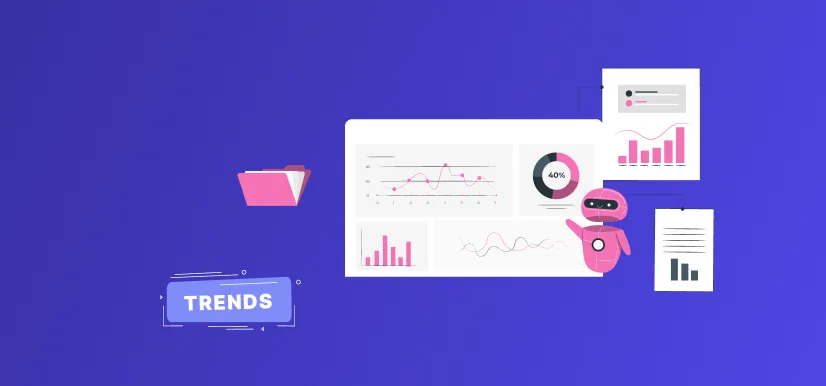Multichannel Marketing
What Is Multichannel Marketing
While traditional marketing channels like television, radio, and print media are still important, today's consumers are increasingly interacting with brands through multiple channels. This is why multichannel marketing has become essential for businesses that want to remain competitive.
Multichannel marketing is the practice of using multiple channels to reach and engage customers. This could include a brand's website, social media, email, mobile app, and physical locations. The goal is to provide a seamless customer experience by delivering consistent messages across all channels.
With so many channels to choose from, it can be difficult to know where to start. The most important thing is to focus on your target audience's channels. Once you've identified those, you can create a strategy for how to best use each one.
Here are a few tips for effective multichannel marketing:
Keep your messages consistent across all channels. This means using the same branding, tone, and style in all of your communications.
Make it easy for customers to find your content. This means using keywords and other search engine optimization techniques on your website and social media posts.
Use data to guide your decisions. Look at the analytics to see which channels are driving the most traffic and conversions. This will help you focus your efforts on the most effective channels.
Test and measure your results. Try different tactics and see what works best for your business. Then, adjust your strategy accordingly.
Multichannel marketing can be a lot of work, but it's worth it if you want to reach and engage more customers.
What Is Multichannel
Multichannel refers to the use of multiple channels to reach and engage customers. Channels can include anything from a company website and social media platforms to brick-and-mortar stores and print advertising.
What Are the Benefits of Multichannel Marketing
One of the most important benefits of multichannel marketing is that it allows businesses to reach a wider audience. With so many different channels available, businesses can target their marketing efforts to specific demographics and niches.
Additionally, multichannel marketing provides businesses with more opportunities to engage with potential customers and build relationships.
Another benefit of multichannel marketing is that it helps businesses create a more consistent brand identity. Businesses can use multiple channels to ensure that their message is communicated consistently and effectively. This can help build customer trust and loyalty.
Finally, multichannel marketing can also be used to generate leads and sales. By using multiple channels to promote products and services, businesses can reach a larger number of potential customers. Additionally, multichannel marketing can help businesses create a sense of urgency and encourage customers to take action.
Overall, multichannel marketing offers numerous benefits for businesses. By reaching a wider audience, building relationships, and generating leads and sales, multichannel marketing can help businesses grow and succeed.
Multichannel vs. Omnichannel
Multichannel marketing is the process of using multiple marketing channels to reach potential customers. This could include things like TV ads, print ads, online ads, and so on.
Omnichannel marketing is slightly different in that it provides a seamless customer experience across all channels. This means that no matter how a customer tries to reach you, they will have a consistent experience.
One of the key differences between these two approaches is that multichannel marketing treats each channel as its own entity, while omnichannel marketing views all channels as part of one integrated system.
Another difference is that multichannel marketing typically relies on mass marketing techniques, such as advertising, that reach a large number of people with a generic message. On the other hand, omnichannel marketing is much more personalized and tailored to the individual customer.
Omnichannel marketing is often seen as the more modern and effective approach, as it considers how customers interact with businesses in the digital age. Customers now expect a seamless experience, and businesses that can provide this are more likely to succeed.
What Are the 3 Keys to Success for Multichannel Marketing
Just because you're using multiple channels doesn't mean you'll automatically be successful. You need to keep three key things in mind if you want your multichannel marketing campaign to succeed.
The first key is to make sure your message is consistent across all channels. This means using the same brand voice and visual identity no matter where your audience is seeing your content. They should be able to instantly recognize that it's from you, no matter what channel they're looking at.
The second key is to make sure you're using the right mix of channels. You need to consider where your audience spends their time and ensure you're reaching them where they are. There's no point in investing all your time and energy into a channel that your audience doesn't even use.
The third and final key is to track your results and adjust accordingly. This means constantly monitoring your metrics and making changes to your campaign based on what's working and what's not. If something isn't giving you the results you want, don't be afraid to ditch it and try something new.
Keep these three keys in mind, and you'll be well on your way to success with your multichannel marketing campaign.
Get a weekly roundup of Ninetailed updates, curated posts, and helpful insights about the digital experience, MACH, composable, and more right into your inbox

